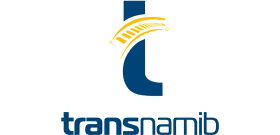 Transnamib’s tax liabilities written off
Transnamib’s tax liabilities written off
Namibia’s Ministry of Finance and Public Enterprises has written off legacy tax liabilities owed by the state railway company, TransNamib, 2024/2025 budget documents revealed.
The liabilities include Pay-as-you-earn (PAYE) worth N$141 million, Value Added Tax (VAT) totalling N$161 million, and import VAT amounting to N$19 million, resulting in a total write-off of N$326 million. Additionally, the government plans to write off liabilities worth N$1.4 billion owed by TransNamib and six other state-owned institutions.
For the 2024/25 financial year, the government has allocated N$2.5 billion towards railway infrastructure, including N$1.9 billion for the upgrading of the Kranzberg-Otjiwarongo railway section and N$488 million for the rehabilitation of the Sandverhaar-Buchholzbrunn railway section in the south of the country.
Over the Medium Term Expenditure Framework, a total of N$6.6 billion is earmarked for railway network development. These allocations are supplemented by operational funding, a dedicated loan facility for purchasing rolling stock, and ongoing efforts to enhance governance at TransNamib.
An additional N$300 million has been allocated to TransNamib to support its day-to-day operations, acknowledging significant infrastructure and operational challenges. On the external debt portfolio, bilateral arrangements for external project financing have been made, with negotiations concluded with the African Development Bank (AfDB), securing a total funding of N$3.7 billion for the upgrading of the railway line between Kranzberg-Tsumeb and Otavi-Grootfontein.
The government will contribute approximately N$3.4 billion to this project, bringing the total funding to N$7.1 billion. The funding for the railway projects follows a 60:40 ratio contribution by the AfDB and the Namibia government, with the government’s contribution reflected under the development budget.
In order to address the infrastructure gaps including railways connections hindering Namibia’s growth potential, the development budget has been significantly increased by 58.1% to N$12.7 billion.
The transport and storage sector is projected to experience growth in 2023, attributed to the anticipated increase in twenty-foot equivalent unit (TEU) handling following the appointment of a container terminal operator, coupled with rising import activities for use in the oil and gas industry, as well as expected growth in construction activities.
The transport sector was allocated a total of N$5.1 billion for the 2024/25 financial year, including N$1.9 billion for projects financed through external loans and grants. This allocation also covers N$1.8 billion for the completion of ongoing road construction projects.
TransNamib said last year that it plans to remanufacture rolling stock, acquire new rolling stock and procure spare parts for its locomotives. The company also plans to modernise, the TransNamib Workshop and upgrade signalling equipment along with related spares and apparatus.
